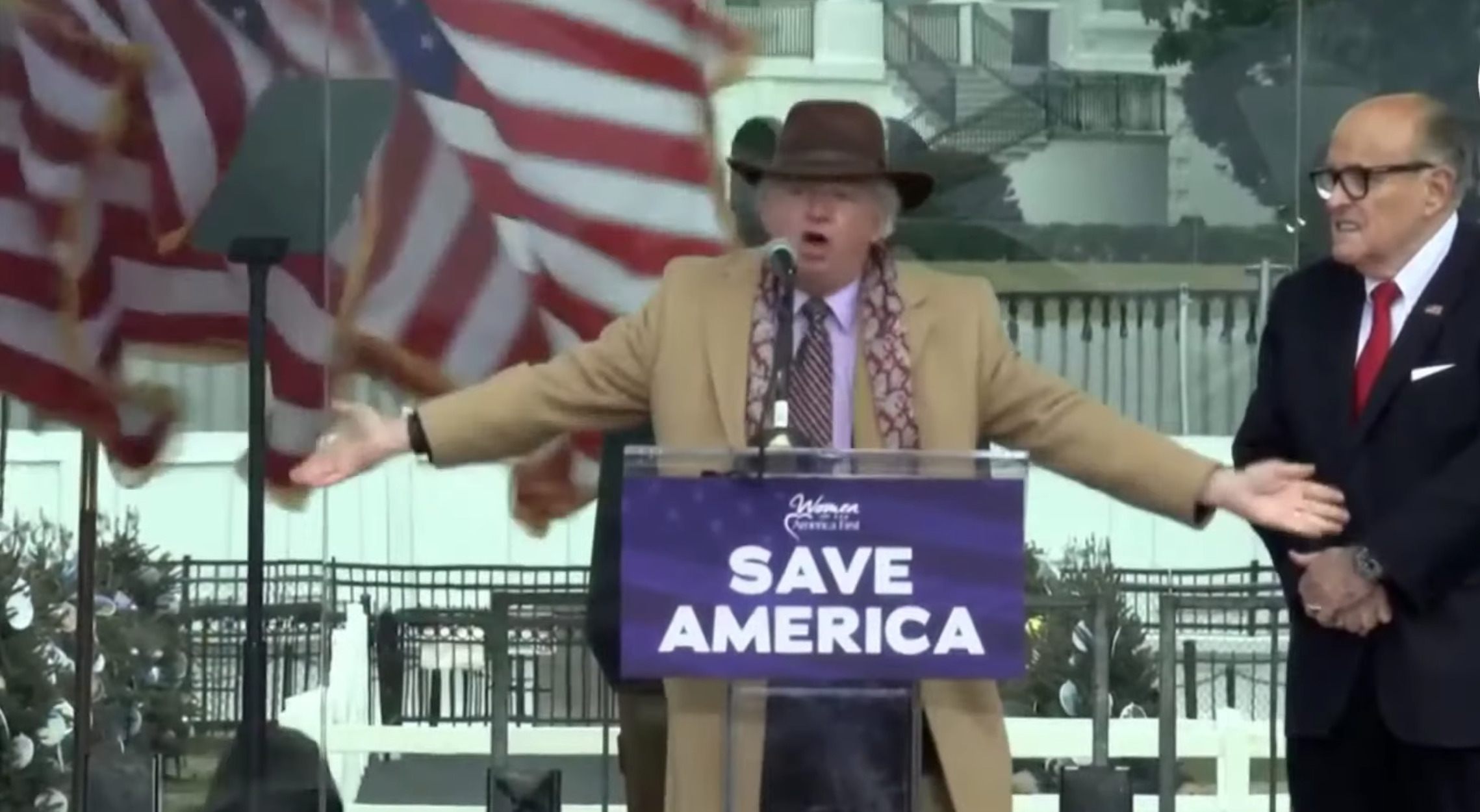Colorado’s Republican National Committeeman Randy Corporon announced on his KNUS radio show Saturday that he and John Eastman, the embattled Trump attorney and plaintiff in a lawsuit against the University of Colorado, will announce on Friday their filing of a new lawsuit against the state of Colorado over the voter-approved constitutional statute mandating open primary elections for the two major parties.
Corporon made the announcement during an on-air phone interview with Wyoming GOP chair Frank Eathorne, in which they discussed the possibility that U.S. Rep. Liz Cheney (R-WY) could capitalize on Wyoming’s open primary statute to successfully fend off a challenge by a popular, Trump-endorsed GOP challenger.
“My good friend and Donald J. Trump legal adviser John Eastman and I will be announcing the filing of a lawsuit in the United States District Court in Denver to stop the open primary, to challenge and overturn the unconstitutional open primary law here in Colorado,” said Corporon on air. “And I don’t know if I have the suit ready by Friday or not, but it’s all in process, right now. Because, we know what Liz Cheney is doing in Wyoming. She is now moving her positions to such a Democrat-supportable position that she wants Democrats — that’s how she’s going to try and hang on to her seat is to try and win the primary — by getting Democrats and crossover voters to come in and defeat the conservative who’s running against her.”
Corporon said the announcement will be made Friday afternoon at “one of the most important political events of 2022” to be held at the Dunafon Castle in Idledale, CO.
Colorado’s Proposition 108, a state referendum approved by voters in 2016, stipulated that unaffiliated voters can choose to participate in the primary election of either major political party, unless the central committee of a party voted by a two-thirds margin to opt-out. If a party chose to opt-out of open primaries, nomination of candidates would be carried out by caucuses, closed to participation by registered Republicans only.
Colorado Republicans voted against opting out of open primaries in September, following a months-long campaign by Republican activists to rally support among party leaders to do so.
At that time, legal experts opined that precedent from a California case, based on First Amendment considerations of freedom of association, could lead to an injunctive relief ruling by higher courts, which would nullify open primaries and allow parties to nominate their candidates by closed primaries or caucuses.
While the GOP governing committee elected to not disenfranchise unaffiliated voters from their primaries outright, members also voted overwhelmingly at the September meeting to authorize the state party to fund a lawsuit against Colorado, challenging either the constitutionality of Proposition 108 in its entirety or the aspect requiring a supermajority to opt-out of the primary.
In the past, similar funding resolutions had failed due to concern over the expense of a legal challenge that might divert funds from other important party initiatives and obligations.
At the time of the September vote, Corporon predicted that his lawsuit with Eastman could come before the 2022 primaries, which are scheduled for June 28.
Both he and Eastman, along with Eastman’s California conservative think tank employers at the Claremont Institute, had intimated that they would offer their legal services to the Colorado GOP at a reduced rate.
Subsequently the Claremont Institute, issued a fundraising plea seeking donations to fund the lawsuit against Colorado, challenging the open primary law.
Last April, Eastman announced his intent to sue the University of Colorado at Boulder where he was the visiting scholar on conservative thought and policy at CU’s Bruce D. Benson Center for the Study of Western Civilization. He is charging the university with infringing on his First Amendment rights, breaching his contract, reputational harm, libel, and slander, and he’s seeking $1.9 million in damages.
The lawsuit was instigated after Eastman appeared at the Jan. 6, 2021, rally in Washington D.C. where he appeared on stage with fellow Trump attorney Rudy Giuliani before participants marched to the Capitol and violent riots ensued.
Eastman also authored a controversial memo at the time, outlining steps that Vice President Mike Pence could take to allow Trump to remain in power longer, despite losing the election in November.
Upon returning to Boulder, Eastman was stripped of his public duties and his classes were canceled due to lack of enrollment.
The House select committee investigating the Jan. 6 insurrection at the U.S. Capitol — a committee on which Cheney sits — subpoenaed some of Eastman’s records related to his role in advising the Trump administration on stopping certification of electoral votes in the 2020 presidential election. A federal judge recently rejected Eastman’s jurisdictional challenges to the subpoena and his claims of attorney-client privilege, ordering him to cooperate with the committee to turn over relevant documents.
Unaffiliated voters comprise the largest sector of Colorado’s active electorate (38%), with Democrats and Republicans comprising 25% and 22%, respectively.




